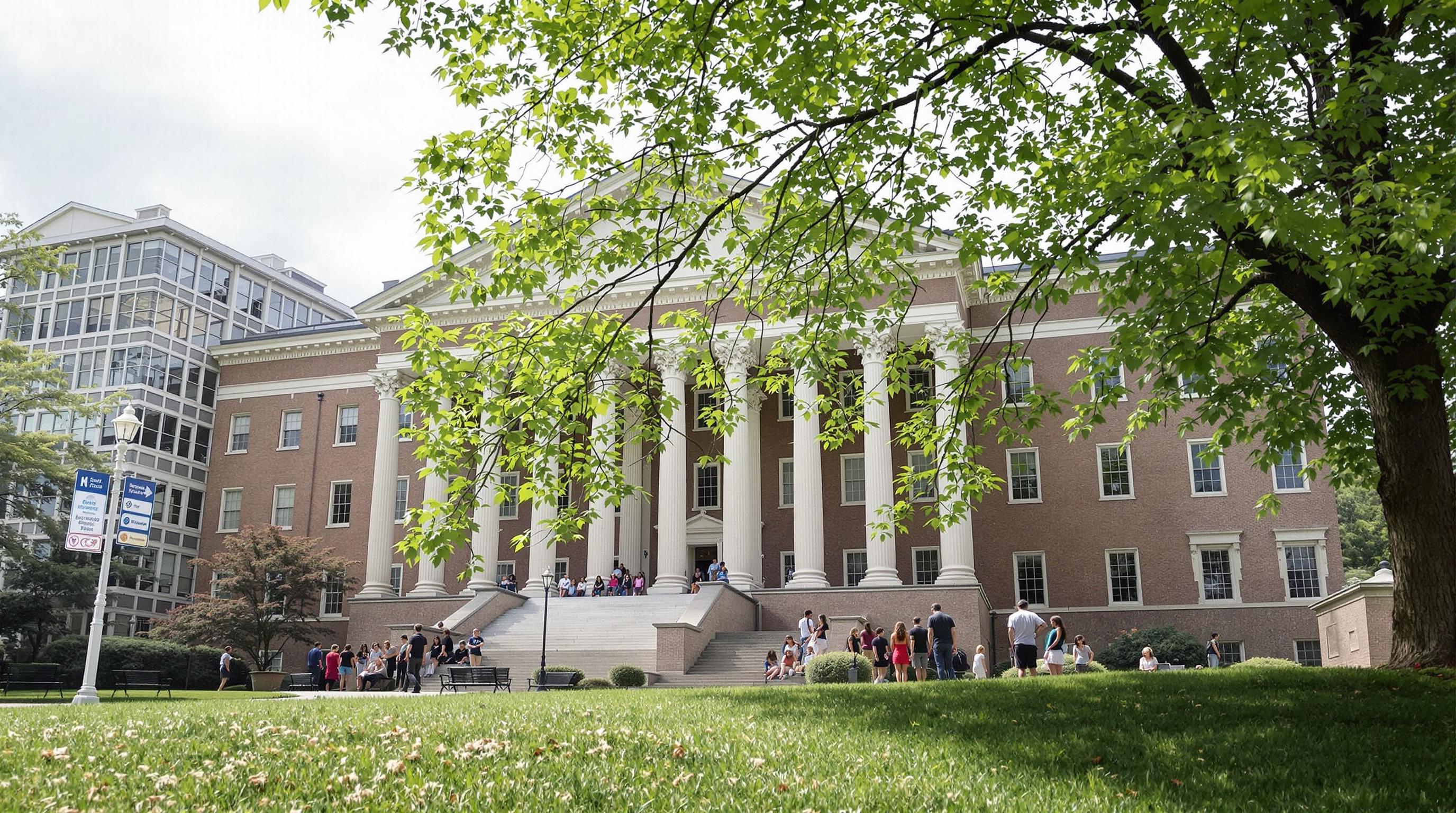Featured Articles
- 9 Hidden Financial Aid Opportunities Every College Applicant Should Explore Before Applying
- From Drones to Diversity: The Surprising Role of Tech in Shaping Modern College Admissions Strategies
- How Midnight Email Strategy and Timing Secretly Influence College Acceptance Odds More Than You Think
- "Micro-Majors: The Rise of Niche Fields and Their Impact on College Admissions Trends"
- The Impact of AI-Generated Essays on Authenticity in College Admissions: A New Frontier or a Recipe for Disaster?
"Unpacking the Rise of Secret College Admissions Societies: A New Level of Networking?"
"Unpacking the Rise of Secret College Admissions Societies: A New Level of Networking?"
The surge of secret college admissions societies has transformed networking among prospective students into an intriguing blend of exclusivity and opportunity. This article delves deep into their origins, implications, and how they shape future academic landscapes.
The Whispering Halls: A Brief History
Secret college admissions societies are not a new phenomenon. They date back centuries, with institutions like Yale and Harvard nurturing clandestine organizations such as Skull and Bones. These groups have historically aimed to forge powerful networks among their members, often leveraging connections for academic, social, and financial advantages.
As universities now admit a record number of students, the pressure to stand out is more intense than ever. In a world where every academic achievement seems par for the course, secrets—or knowledge of hidden pathways—become invaluable currencies. According to a recent survey by the National Association for College Admission Counseling (NACAC), 58% of college counseling professionals believe that social networks and relationships play a significant role in the admissions process.
The Power of Connection
Imagine this scenario: You’ve aced your SATs, maintained a stellar GPA, and participated in multiple extracurricular activities. Yet, when you submit your application to a top-tier university, you realize you're one of thousands vying for a spot. Enter the secret societies, where connections often outweigh qualifications.
For example, a student might learn about an informal mentorship program through a secret society, gaining insights that help craft their application or even receive a recommendation from a notable alumnus. In competitive landscapes, networking can be the difference between acceptance and rejection.
Networking or Exclusion?
Critics argue that these societies perpetuate elitism and create significant barriers for less privileged applicants. In 2019, research published in the *Journal of Higher Education* asserted that affluent students were three times more likely to have access to private college counseling and admissions networking than their disadvantaged counterparts. This creates an uneven playing field where social connections may overshadow academic merit.
Of course, one must consider the underlying motivation of these societies. Are they genuinely facilitating networking for students to share knowledge, or are they simply a mechanism for maintaining an elite status quo? As one skeptical student remarked, “Networking is just a fancy term for a social ladder.”
The Shifting Landscape: An Unexpected Turn
The COVID-19 pandemic threw higher education into disarray, forcing universities to rethink how they assess applications. This shift unintentionally amplified the societal secretive networks. Virtual events, webinars, and online discussions created opportunities for these groups to thrive, as students sought guidance in an unpredictable world.
Success Stories: The Good, The Bad, and The Ugly
One prominent success story is Emily Wang, who gained admission to Ivy League universities through her involvement in a secret society that matched students with industry professionals. “The guidance I received was unparalleled,” she shared in a podcast interview with The College Insider. “Without that network, I wouldn’t have known where to start.”
However, there’s the flip side. Jake Thompson, on the other hand, recounted how the very idea of exclusion marred his experience. After being shut out from opportunities because he wasn’t part of a “network,” he penned a blog post titled *Why Secret Societies are the Real Enemy in College Admissions*, which went viral, sparking debates across social media platforms.
Adapting in a Competitive Era
The competitiveness of college admissions continues to evolve. With 70% of admissions offices reporting alternate evaluation strategies since 2020, new paths to success are emerging. This leaves us asking: is it possible to network effectively without the shackles of secrecy? Or will these budding opportunities simply usher in new forms of exclusivity?
Universities like Stanford are experimenting with a more holistic admission process that considers personal experiences, community involvement, and even resilience shown during difficult times. This move could potentially dilute the power of elitist secret societies, but what remains to be seen is whether it will lead to true equality in admissions.
The Role of Technology in Networking
In this digital age, technology has transformed how students network. Social media platforms, online forums, and specialized apps aim to connect students with mentors and peers. A recent study from the Pew Research Center highlighted that 85% of students use social media for academic purposes. Does this mean that traditional secret societies might become obsolete?
Not necessarily. While more students can access knowledge, those with intimate connections to powerful networks may still possess an edge. The question remains: how do we reconcile the value of traditional networking with the burgeoning accessibility afforded by technology?
The Humor in it All: The Myth of the "Hidden Society"
And let’s not forget the absurdities. Ever heard about the secret organization named "The Keepers of the GPA"? They supposedly meet in the library basement and communicate via coded emails written entirely in emojis. It’s funny until you realize some students actually take these things seriously! “Why can’t we just email each other, you know, like normal people?” one member quipped during a coffee break.
Global Perspectives on College Networking
In a global context, the principles of networking within secret societies are not unique to American colleges. Institutions around the world employ similar tactics, often rooted in cultural values. For example, in the United Kingdom, Oxbridge societies have long been known for their exclusive alumni networks that grant advantages to members.
In places like Japan, the concept of “giri” emphasizes the importance of social relationships and obligation. This cultural underpinning can also lead to a form of networking behavior that parallels the exclusivity found in secret societies elsewhere. The more we distill this phenomenon across cultures, the clearer the common thread of connectivity becomes.
The Future of Networking: Inclusion vs. Elitism
What does the future hold for secret college admissions societies? Will they continue to thrive, adapting to the ever-changing dynamics of admissions? Or will they begin to dissolve as universities seek equity and transparency? It's the ultimate game of evolution, and each generation adds a new layer to the discussion.
Student Voices: A Collective Call for Change
Students are beginning to challenge the status quo. Initiatives such as "No Secrets" are starting to gain traction. This movement calls for transparency in admissions processes and creates mentorship programs accessible to all students, regardless of background. As one participant put it, “If knowledge is power, let’s share it with everyone!”
A Concluding Thought
As society grapples with whether these secret societies serve more to unite or divide, one thing remains certain: the search for meaningful connections will persist. The landscape of college admissions will inevitably change, igniting debates and discussions that may redefine how we view networks—secret or otherwise. In a world filled with hidden truths, transparency could be the new gold standard.
Ultimately, as we’ve seen, the rise of secret college admissions societies is more nuanced than simply a quest for exclusivity; it represents a complex web of human connection that continuously evolves with the times. The question, then, shifts from whether they should exist to how we can harness their potential while fostering inclusivity.




